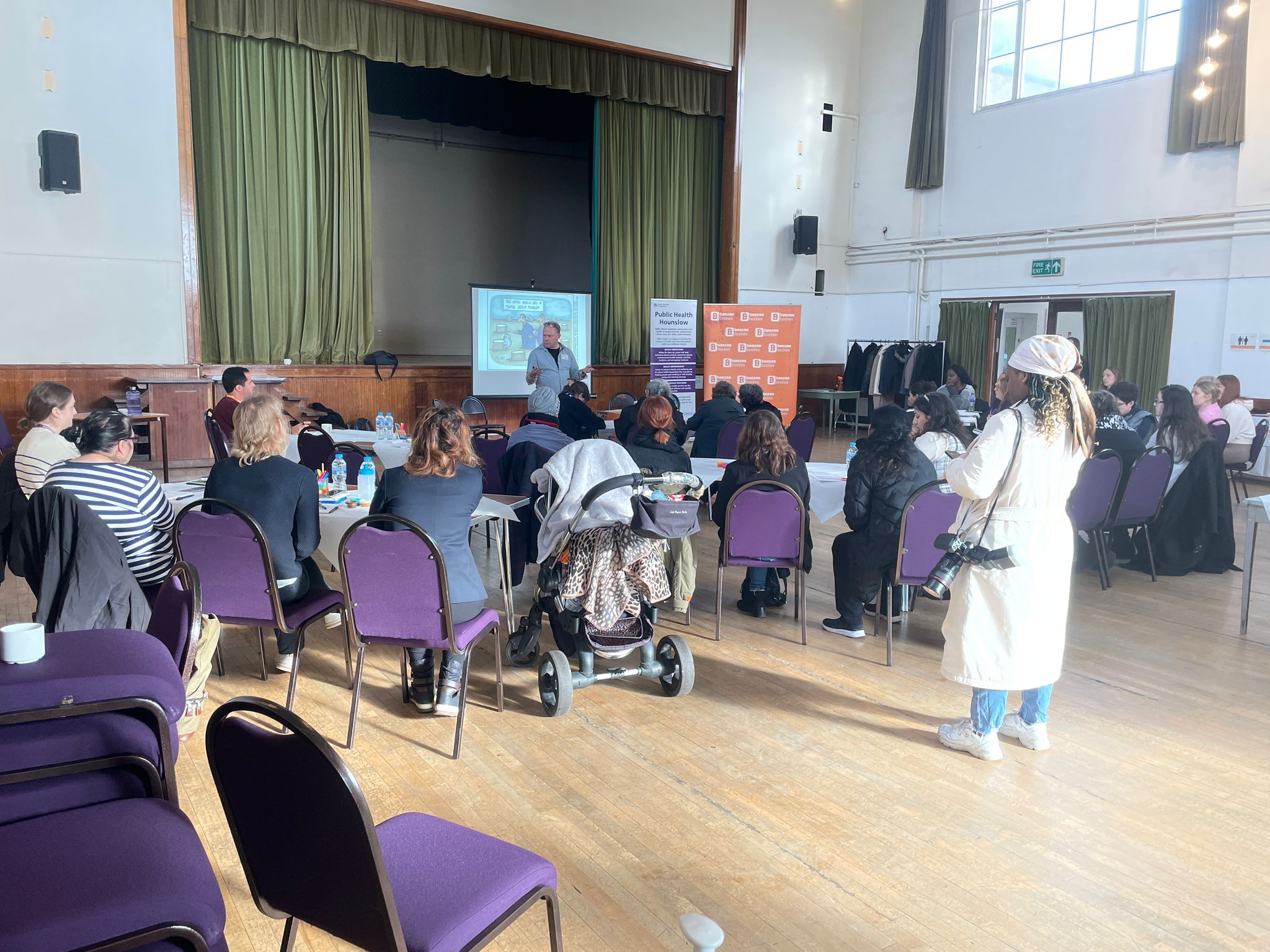As a specialist provider of public health services, BeeZee Bodies has been delivering a range of community-based lifestyle programmes for more than 15 years, helping people move towards real, long-lasting change, and in turn, healthier lives.
Every community is different and the drivers for engagement vary among the groups we work with, from men in their 50s to parents of young children or even dog owners. As an organisation, we have had to work hard to determine how co-production can be used in our services meaningfully. It was a process we had to define and develop, adjusting our way of working to further our understanding of our service users, while crucially informing our design and delivery.
Co-production in the truest sense goes much further than surface-level consultation or representation; it is about creating and nurturing genuine partnerships between public health services and those that use them. For effective co-production, you must be able to share power, listen constructively and take joint action – crucially avoiding any pre-determined outcomes ahead of time.
Intrinsically linked to this philosophy is that of asset-based community development (ABCD), which refers to a way of strengthening communities through recognising and harnessing existing assets. Instead of looking at what a community needs or lacks, the approach focuses on what’s already there. It most importantly acknowledges that every person has value and skills that they can contribute to their community.

Whilst this community conversation was incredibly productive, offering the Local Authority, our team, and members of the community a chance to connect and hear each other, it highlighted the need to have the ability and courage to act on the information we heard. This is one of a number of potential barriers to true co-production in public health that must be overcome in order to realistically and meaningfully put communities at the heart of public health.
Notable Barriers
Time
One of the biggest barriers to effective co-production is time. Externally imposed tight deadlines prevent relationships and trust developing naturally. Without time to embed ourselves and our services within the community, it is always going to be difficult to genuinely engage, build trust and collectively take action.
Trust
Whether people trust you or not will dictate whether they show up in the first place. Trust is one of the first principles of co-production and this cannot be rushed. It comes in the door slowly, but leaves like a rocket ship if you do not build on the four critical components of trust:
- Integrity
- Intent
- Competence
- Results
When people trust your integrity and intent (character) and see you are competent and deliver results (outcomes), they are more likely to invest time and effort in a shared goal.
Working alongside trusted local people and organisations is one way in which we can try to build trust quickly, ensuring we are candid with communities about the reality of our position. Authenticity and sharing challenges goes a long way with communities in helping to build trust and commitment through transparency.
Lessons Learned
One of the most important lessons we learned from the past 12 months of implementing a co-production and insight gathering process across our contracts, was in the industry-leading Strategic Oversight Group (SOG), which was established in September 2021.
By working with a team of public health professionals from various backgrounds, we created ‘productive tension’ by intentionally inviting experienced professionals from a range of fields (Academia, Solution design, UX/Tech, Marketing, PR, equality and diversity, public health), all of whom are known to be ‘disruptors’. The principle of avoiding shared blind spots by increasing diversity came from Matthew Syed’s book, Rebel Ideas, and was designed to ensure that as we delivered co-production and insight gathering practices across the organisation, we considered both the process and the outcomes from a range of perspectives. The tension was ‘productive’ because everyone in the group was committed to listening and building on ideas and experiences from other group members. This is built on Rory Sutherland’s idea that we should not be snobby about where good ideas come from – a tenet that ran throughout the project.
This process led us to redefine the very aim of the project, from delivering co-production, to working towards co-production. It was not possible through the diversity of perspectives, which resulted in us redefining our meaning of co-production. Our experience, as well as reflections and discussions with the SOG, allowed us to identify real-life challenges associated with true co-production in the real world. We found that in a commissioned service, with pre-set aims and significant timing challenges, it becomes difficult to genuinely co-produce with communities, individuals, professionals, and groups. The reason is that we didn’t have the latitude to share power to act on all elements of communities’ contributions, and did not have the time for trust and relationships to develop without aligning with existing trusted organisations.
Through weekly and monthly meetings, we debated emerging ideas and approaches with co-production at the heart of our discussions. It was an innovative and unique opportunity to explore the tensions created by contrasting expert perspectives and methodological approaches – to elicit unique, in-depth and rich insights that helped us inform our approach.
Looking Ahead
It’s clear there are real-life challenges associated with true co-production. From our own experience delivering commissioned services to communities across the country, we have redefined our aims as ‘working towards co-production’ in order to genuinely deliver to our commissioners and service users.
In the real world, this is a messy and emergent process. So, if you are a commissioner or working strategically in public health and want to use co-production in your local communities, it is worth considering the importance of time and the level of trust required. It is also imperative that you do not lock down the process with pre-set KPIs that prevent the co-production process from being effective. To build trust, we have to be able to listen and act on what is heard during the co-production process, and contracts need to be able to accommodate that level of uncertainty. This is key for the process of co-production to work in Public Health.
There is one key element required to embrace co-production genuinely – courage. It takes courage at the local level to engage in spending public money without having certainty about all the details, in service of a goal, to which the path is not clear. It takes courage to trust in the people involved in the process to engage, commit and work together towards a common goal. It takes courage to give away power to communities without knowing if it will succeed. In fact, failure is inevitable – in that failure is part of learning. Embracing uncertainty and learning through transparent trial and error is a necessary part of co-production.





